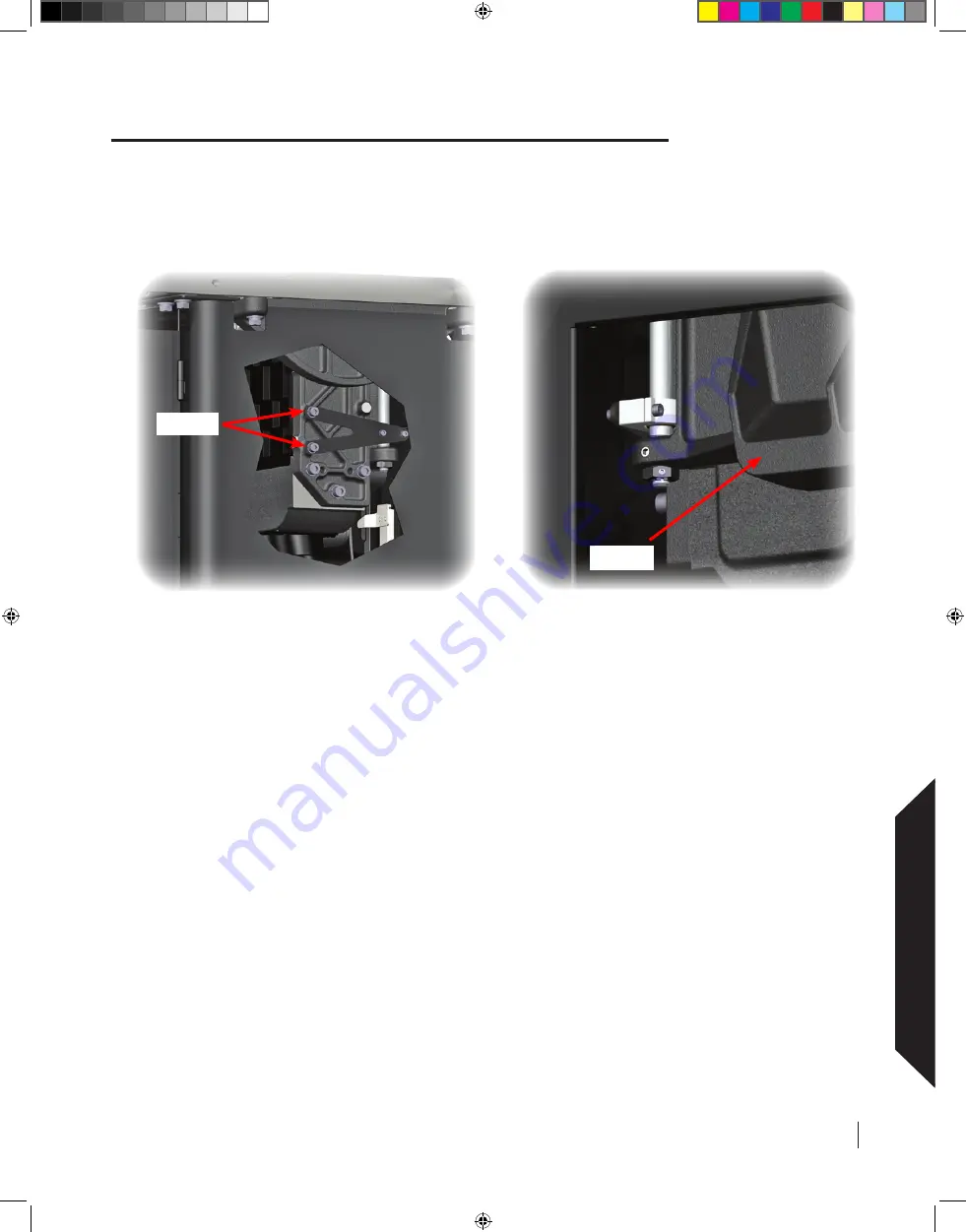
SawStop 10” Industrial Cabinet Saw 55
Adjusting
Your Saw
Making Adjustments to Your Saw
Reposition the dial test indicator toward the front of the saw with the measurement arm about 1/2 inch inside
the front edge of the blade. Set the dial readout to zero. Slide the dial indicator mount toward the back of the
saw until the measurement arm is about 1/2 inch inside the rear edge of the blade. Note the readout.
If the readout is -
2.5 times the first and second measurements, the v-bracket should be correctly positioned.
Otherwise, repeat the above process of adjusting the position of the v-bracket until the dial indicator at 0° reads
-
2.5 times the difference between the first and second measurements.
Once the v-bracket is positioned correctly, tighten the bolts that attach the v-bracket to the rear trunnion. The
blade should now be parallel to the tilt axis.
Since the alignment of the blade has been changed, the table must now be realigned. Align the table as
described on page 46, using the precision alignment procedure. Once the table has been realigned, you can
check the parallelism of the blade to the tilt axis by tilting the blade to about 45° and measuring the alignment
between the blade and the miter slot. If the misalignment of the blade and the miter slot is less than 0.002 inch
at both 0° and 45°, then the blade is parallel to the tilt axis. If necessary, you can fine tune the alignment by
repeating the above procedure.
To create a negative misalignment, use a block of wood and a mallet to tap the edges of the v-bracket (see
Fig. 59). To create a positive misalignment, use a block of wood and a mallet to tap the left side of the elevation
plate (see Fig. 58).
Fig. 59
tap here
Fig. 58
tap here
Cabinet Saw Manual 1st Reprint.i55 55
3/9/2010 8:33:03 AM
















































